QuestionWe have a two and a half year old leopard gecko who lives in a vivarium with a heat lamp and a newspaper base (previously ingested sand). This has been fine until recently as he has not pooped for about 7-8 days. He has eaten a little but we have not put any crickets in for last couple of days to see if that helps. Today I was advised to put him in warm water (up to his underbelly) to try to loosen things up. Is this good advice and if so for how long should we put him in? He is not keen on being handled since needing vet treatment least year. We recently moved his vivarium - about three weeks ago - into the living room. He is out more during the day and spends a fair bit of time in his moisture box. Any recommendations on what to do? Many thanks
AnswerActual constipation is a rare issue in reptiles, since their diet tends to be pretty predictable. When it does occur, it's usually due to dehydration. Make sure the humid hide is humid enough.
Yes, soaking the gecko for about a half hour is a good idea, as this will help to rehydrate him. Do this every day until it produces results. I would offer food on a regular schedule.
Keep track of what he eats. It may that the gecko is off his food, and that's why he's not producing anything, rather than his actually being constipated. Sick geckos will generally not eat. If the warm water soaks don't produce results in 3 days, and he is refusing food, then you'll have to seek veterinary attention for him to find out what the problem is. (He may have some sort of intestinal obstruction, rather than simply being constipated; or, it may be another issue entirely that's caused him to stop eating).
It's been my experience that if you keep feeding a reptile, and they keep eating, then there's nothing to worry about--if something was blocked, it would make them feel sick, and they wouldn't eat. Reptiles readily stop feeding when there's something wrong with their health or digestion.
Check the hot spot temperatures, and make sure the cage floor on the hot side is 90F during the day. Cooler temperatures can slow digestion as well.

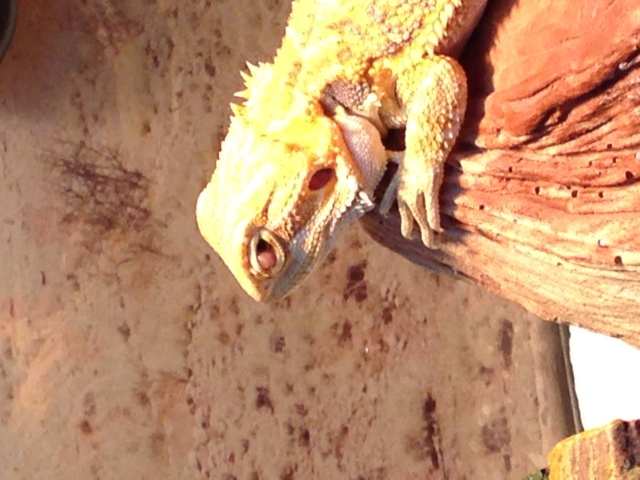 Bearded dragon eye problem
QuestionEye
QUESTION: Hi Mick,
I was researchin
Bearded dragon eye problem
QuestionEye
QUESTION: Hi Mick,
I was researchin
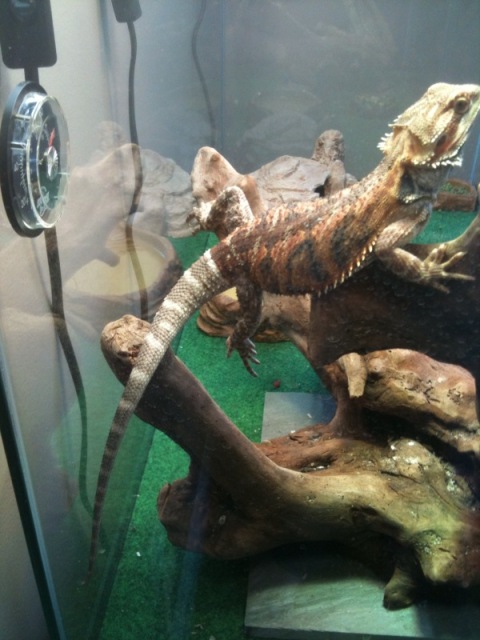 bearded dragon tail turned white
QuestionBDs white tail
QUESTION: My 8 month old
bearded dragon tail turned white
QuestionBDs white tail
QUESTION: My 8 month old
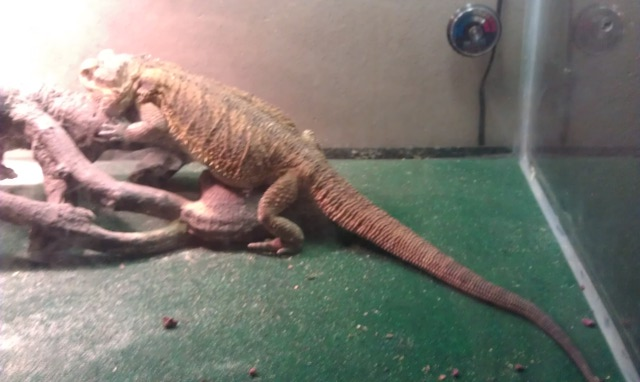 sick beardy
QuestionQUESTION: Hello my family recently was given a
sick beardy
QuestionQUESTION: Hello my family recently was given a
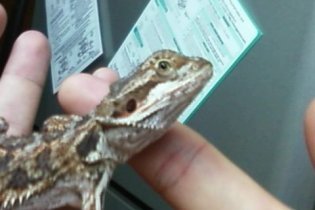 Lower jaw color
QuestionQUESTION: Hi again. I have yet another question
Lower jaw color
QuestionQUESTION: Hi again. I have yet another question
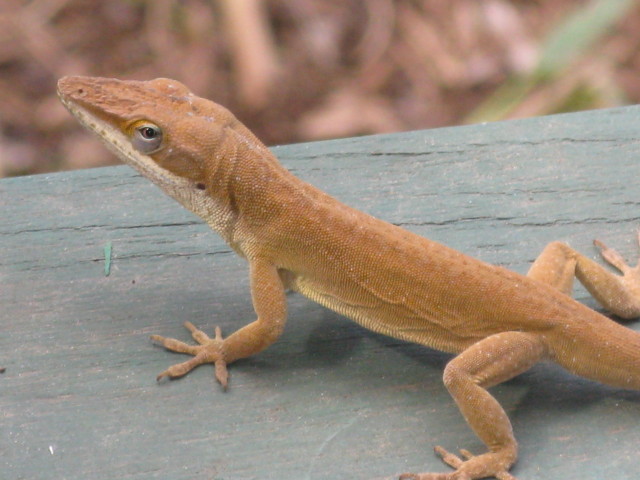 What is this??
Question
Lizard
I just moved to south Texas from Nebras
What is this??
Question
Lizard
I just moved to south Texas from Nebras